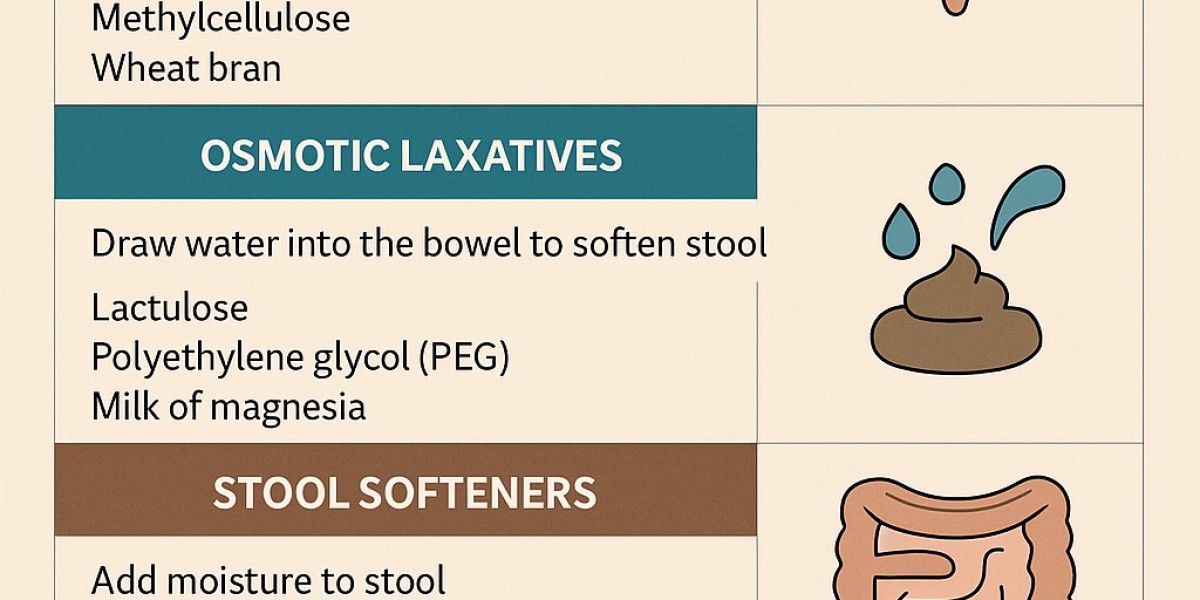Constipation is a common digestive issue that affects people of all ages. It causes discomfort, bloating, and difficulty passing stool. Many people turn to medicine for relief, especially when lifestyle changes are not enough. But a common question arises: Is there a safe long-term medicine for constipation? This guide helps explain your options clearly and simply.
What Is Constipation?
Constipation means having fewer than three bowel movements in a week. Stools may be dry, hard, and difficult to pass. You may also feel like your bowel doesn’t empty fully.
Common causes of constipation:
Low fiber intake
Dehydration
Lack of physical activity
Ignoring the urge to go
Certain medications
Medical conditions like IBS or hypothyroidism
When to Consider Medicine for Constipation?
Medicine is often considered when:
Home remedies and lifestyle changes are not enough
Constipation lasts more than a few days
There is regular discomfort or pain
There is a need for long-term symptom management
Types of Medicine for Constipation
Several types of constipation medicine are available. Some are gentle and safe for long-term use, while others are only for short periods.
1. Bulk-Forming Laxatives (Fiber Supplements)
These increase stool size by absorbing water. They help form soft, bulky stools that are easier to pass.
Examples:
Psyllium husk (Ispaghol)
Methylcellulose
Wheat bran
Benefits:
Mild and safe for long-term use
Supports regular bowel habits
Suitable for most age groups
2. Osmotic Laxatives
These draw water into the bowel to soften stool and increase bowel movement.
Examples:
Lactulose
Polyethylene glycol (PEG)
Milk of magnesia
Benefits:
Effective in softening stool
Useful in chronic constipation
Some types are safe for long use (PEG)
3. Stool Softeners
They add moisture to stool, making it easier to pass.
Examples:
Docusate sodium
Benefits:
Gentle action
Useful after surgery or during pregnancy
Note: Not usually a long-term solution alone.
4. Stimulant Laxatives
These trigger muscles in the intestine to push stool out.
Examples:
Bisacodyl
Senna
Benefits:
Work quickly
Caution:
Not recommended for long-term use. Overuse may weaken natural bowel function.
5. Lubricant Laxatives
They coat stool and help it slide through the colon easily.
Example:
Mineral oil
Benefits:
Quick relief
Caution:
Not for regular use. Can interfere with nutrient absorption.
Comparison Table of Constipation Medicines
| Type | Common Use | Long-Term Safe | Action Time | Key Benefit |
|---|---|---|---|---|
| Bulk-Forming | Daily use | Yes | 12-72 hrs | Builds regular habit |
| Osmotic | Moderate to daily | Some (PEG) | 24-48 hrs | Softens stool effectively |
| Stool Softeners | Short-term relief | Limited | 12-72 hrs | Reduces straining |
| Stimulant | Occasional use | No | 6-12 hrs | Fast relief |
| Lubricant | Rarely used | No | 6-8 hrs | Eases hard stool passage |
Who Should Use Long-Term Constipation Medicine?
Some people may need regular medication for constipation. These include:
Elderly individuals
Patients on pain medications (like opioids)
People with chronic conditions such as IBS-C
Those with limited mobility
For such cases, bulk-forming laxatives or PEG-based osmotic laxatives are often considered safest.
Tips to Use Constipation Medicine Safely
1. Start With a Low Dose
Give your body time to adjust, especially with fiber supplements.
2. Drink Enough Water
Most constipation medicines, especially fiber, need water to work properly.
3. Watch for Side Effects
If you feel bloated, gassy, or have cramps, speak with your doctor.
4. Avoid Overuse of Stimulants
Frequent use can lead to dependency.
5. Stick to a Routine
Take your medicine at the same time daily for better results.
Lifestyle Support for Constipation Relief
Even with medicine, lifestyle plays a key role. These simple steps can support bowel health:
Add fiber: Eat fruits, vegetables, and whole grains
Stay hydrated: Drink 8-10 glasses of water daily
Stay active: Even walking 20 minutes a day helps
Respond to the urge: Never delay when you feel the need to go
When to See a Doctor
Seek medical help if:
Constipation lasts more than 2 weeks
You see blood in your stool
You have sudden weight loss
There’s no relief even with medicine
Conclusion
There is safe long-term medicine for constipation. Bulk-forming laxatives and PEG-based osmotic laxatives are considered the most reliable for ongoing use. However, medicine should be combined with a healthy lifestyle to keep your digestive system working well. Avoid using stimulant or lubricant laxatives regularly, as they can cause harm over time.
If you're unsure which medicine to take, it’s always better to talk with a healthcare professional. A guided approach, based on your body's needs, helps you stay comfortable and healthy without over-dependence on medication.
Visit for more informational Blogs.


